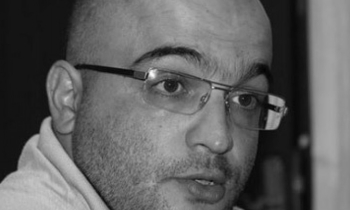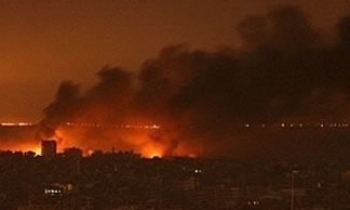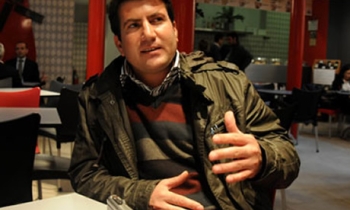LONDON, June 12--Prime Minister Tony Blair on Tuesday said the news media, driven by increasing competition and pressure from fast-changing technology, has largely abandoned impartial reporting in favor of sensation, shock and controversy, which he said demoralizes public servants and badly serves the public.
"The fear of missing out means today's media, more than ever before, hunts in a pack," Blair said in a speech two weeks before he steps down after a decade in office. "In these modes it is like a feral beast, just tearing people and reputations to bits. But no one dares miss out."In a speech hosted by the Reuters Institute for the Study of Journalism, Blair said the media has become fragmented with the proliferation of blogs and other Internet-based sources of information and 24-hour television news programming. As newspapers "fight for a share of a shrinking market," he said, they face pressure to publish news on their Web sites today rather than in their newspapers tomorrow.
That new competition and increasing demands to produce news instantly has placed unprecedented burdens on news organizations, which have responded by "unraveling standards" of journalism and stressing "impact" over accuracy, he said.
"It is all that can distinguish, can rise above the clamor, can get noticed," he said. "Impact gives competitive edge. Of course the accuracy of a story counts. But it is secondary to impact." In that environment, he said, "Something that is interesting is less powerful than something that makes you angry or shocked. . . A problem is 'a crisis.' A setback is a policy 'in tatters.' A criticism, 'a savage attack.' "
Blair said his assessment was not a complaint about his own treatment in the media, but rather an argument that the relationship between the media and those in public life had become poisonous and needed to be repaired.
"We are all being dragged down by the way media and public life interact," Blair said. "Trust in journalists is not much above that in politicians. There is a market in providing serious, balanced news. There is a desire for impartiality. The way that people get their news may be changing; but the thirst for the news being real news is not."
Blair came into office in May 1997 as a media darling who was routinely portrayed as a dynamic reformer and gifted orator who represented a shining new era in British politics. A decade later Blair is criticized daily in the British press, largely over his handling of the Iraq War and his close relationship with President Bush. He has announced that he will step down on June 27, allowing Gordon Brown, the country's finance minister, to succeed him.
In his speech Tuesday, Blair said he was partly to blame for helping create the current media climate during the early days of New Labor, as the movement he led within the Labor Party became known. "We paid inordinate attention in the early days of New Labor to courting, assuaging and persuading the media," he said. "Such an attitude ran the risk of fueling the trends in communications that I am about to question."
Blair said that the growing intensity of the news media had changed, for the worse, the way all people in public life make decisions. When he took office, he said, he and cabinet ministers would often debate a serious problem for two days before announcing a position. "It would be laughable to think you could do that now without the heavens falling in before lunch on the first day," he said.
Blair said a "vast aspect" of public life today is "coping with the media, its sheer scale, weight and constant hyperactivity."
"At points, it literally overwhelms," he said. "Talk to senior people in virtually any walk of life today--business, military, public services, sport, even charities and voluntary organizations, and they will tell you the same."
Blair said he initially believed that fast-evolving technology would improve the situation by providing "new outlets to bypass the increasingly shrill tenor of the traditional media." However, he said, "the new forms can be even more pernicious, less balanced, more intent on the latest conspiracy theory multiplied by five."
Blair said he was "not in a position to determine" what should be done to repair the rocky relations between the media and those in public life.
"The damage saps the country's confidence and self belief," he said. "It undermines its assessment of itself, of institutions, and above all, it reduces our capacity to take the right decisions in the right spirit for our future."









